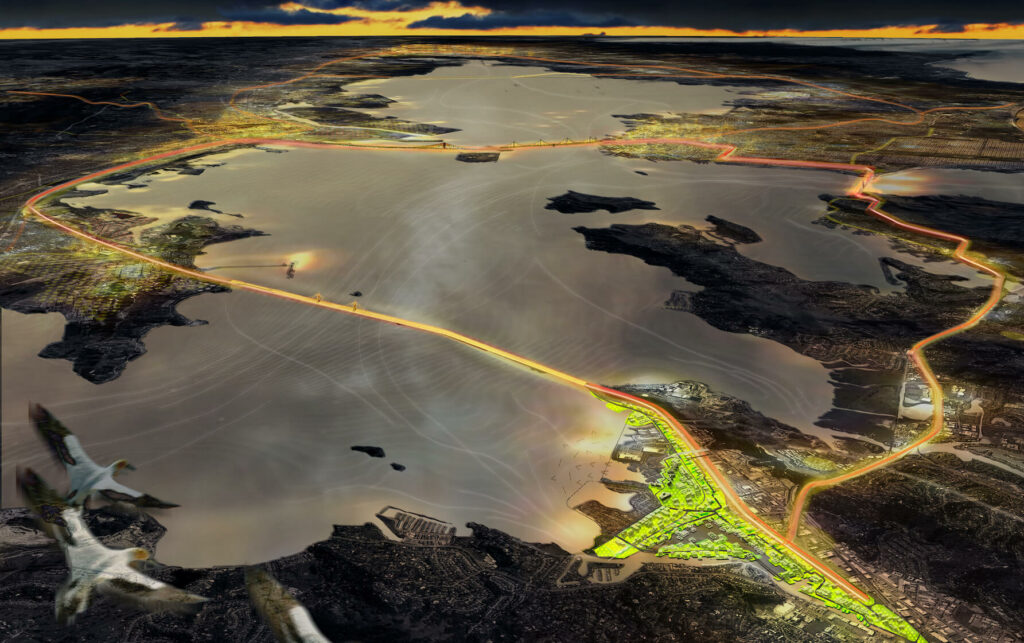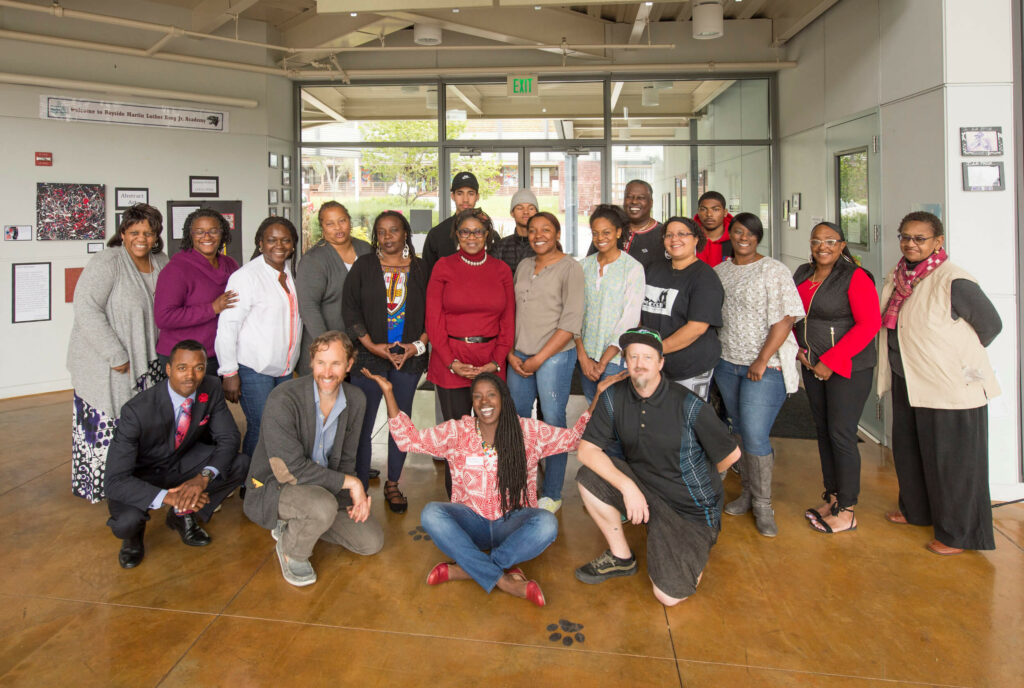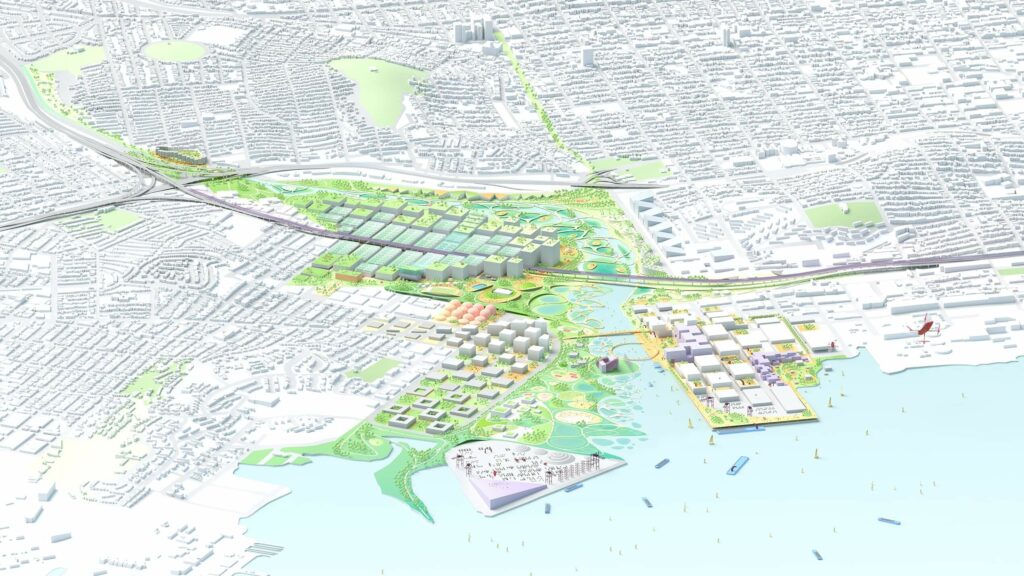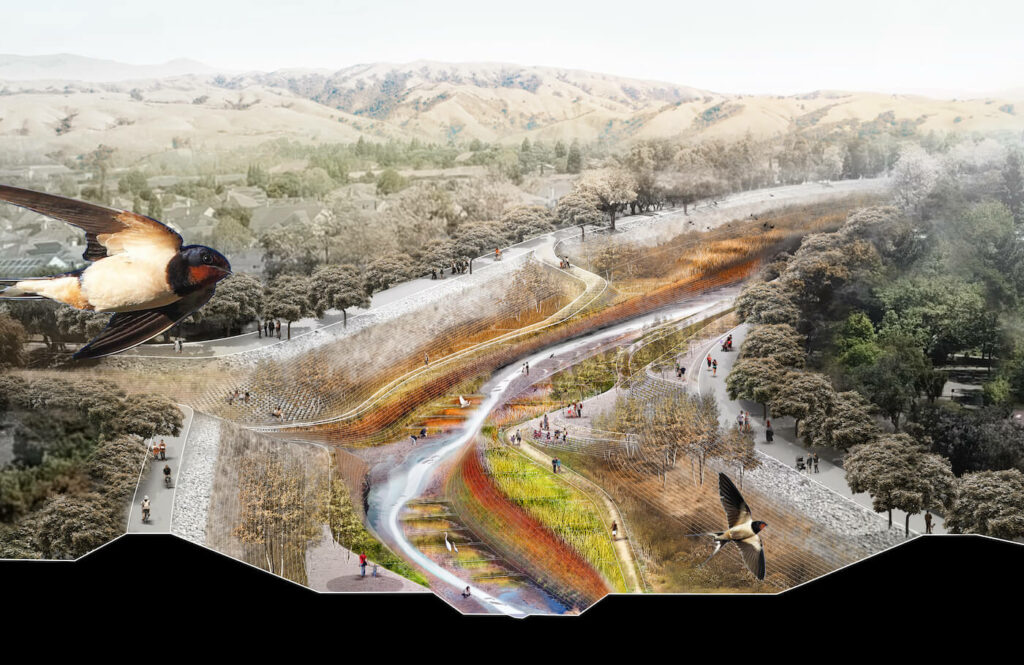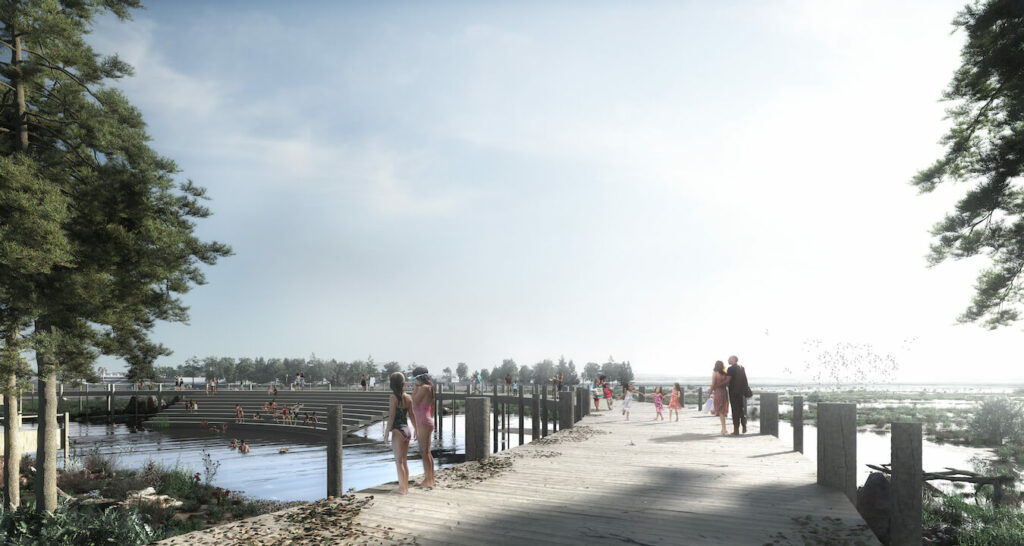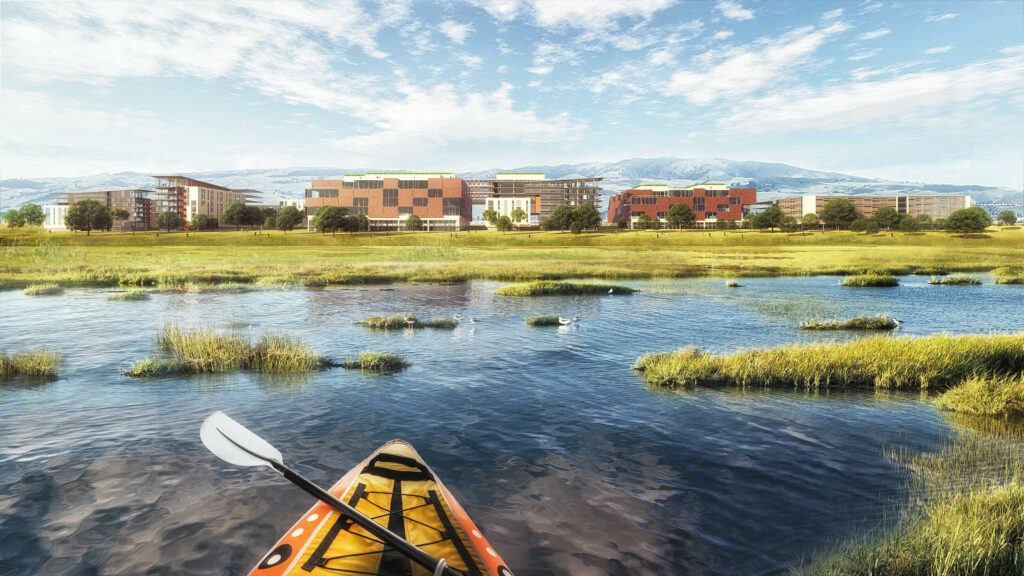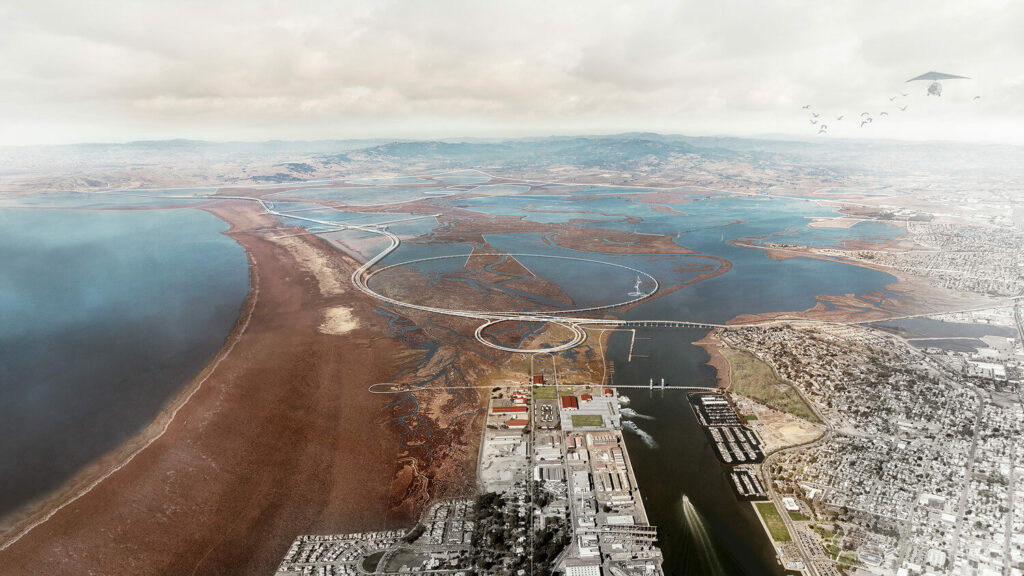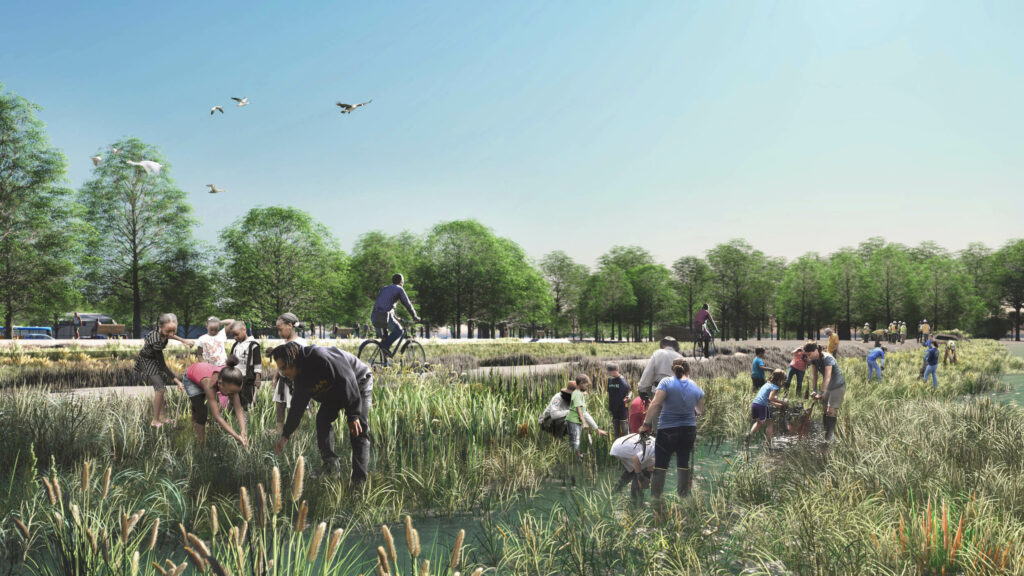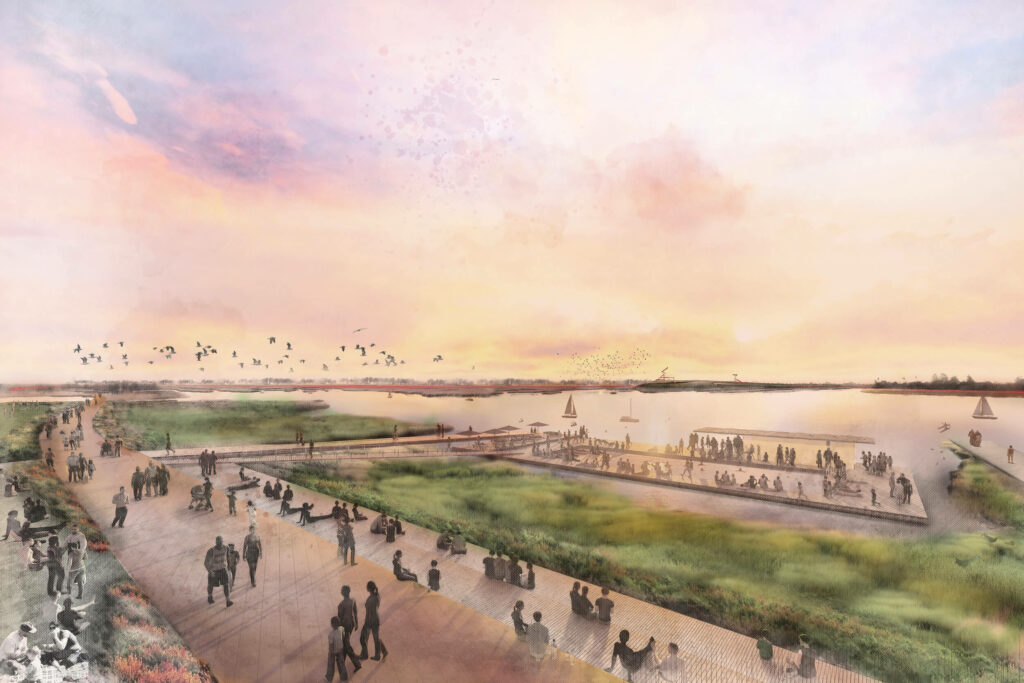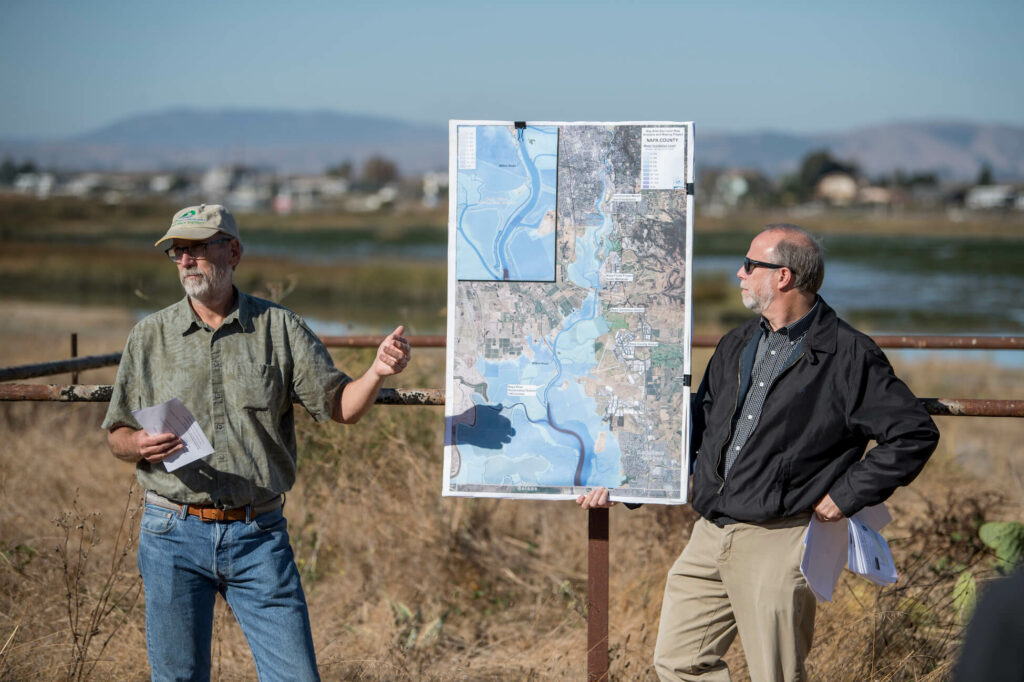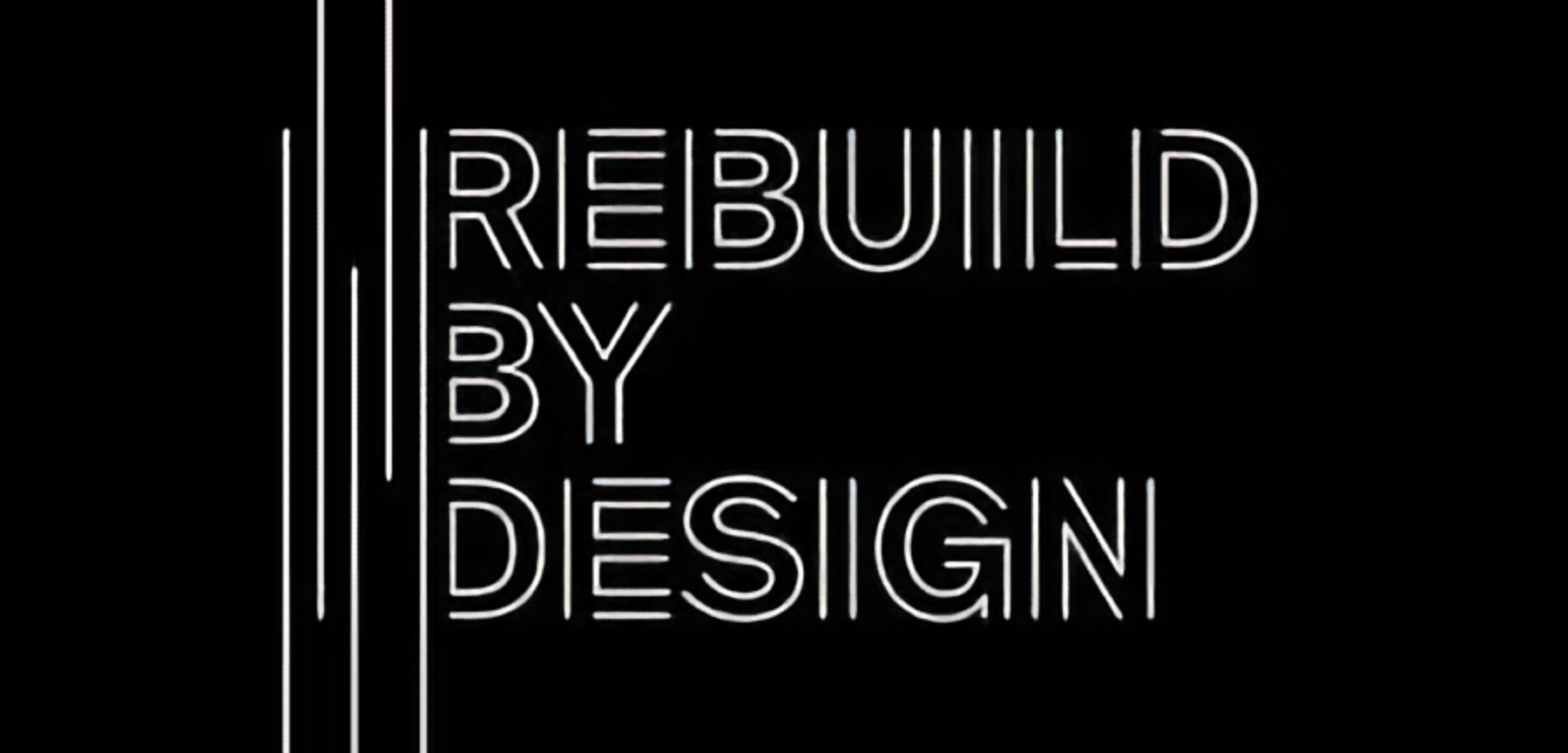After the success of the Hurricane Sandy competition, the city of San Francisco reached out to Rebuild by Design to co-design a challenge for the Bay Region. Instead of responding to a disaster, their challenge was to plan long-term for sea level rise. The premise of the Resilient by Design Bay Area Challenge (RbD) was both simple and audacious. As flood risks increase due to intensified severe storms and sea level rise, organizers asked the question – can the Bay Area come together to shift its course and build a more resilient region before a big disaster hits, and can we address other regional challenges along the way?
Launched in 2017, the Bay Area Challenge inspired, activated, and informed individuals and institutions throughout the region to take seriously the threat of climate change. The regional momentum generated will continue on as communities work together to build resilience, implement Resilient by Design projects and address sea level rise and climate change impacts around San Francisco Bay. However, we know that to take on such an enormous challenge the work has only begun.

Bay Area Challenge Resources
Engagement Toolkit
Bay Area Challenge Briefing Book
The Jury and Advisory Groups
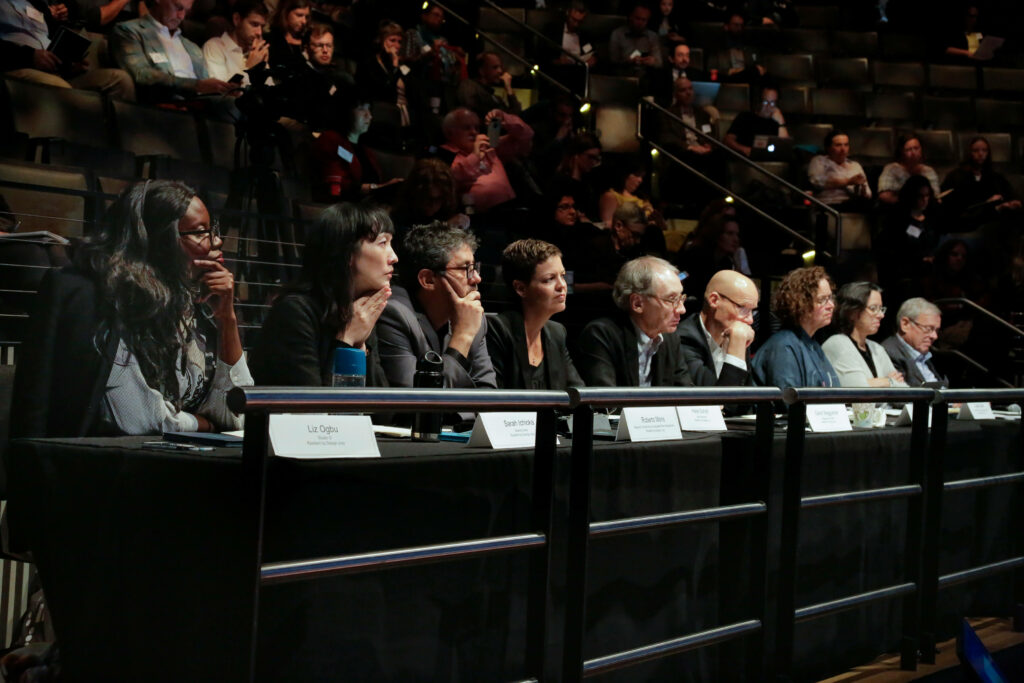
The Jury
The Resilient by Design Jury functioned as an expert panel and provided critical input at the Challenge launch and final Collaborative Design Phase. The Jury selected the participating Design Teams and reviewed the final designs at the conclusion of the Challenge.
Lauren Alexander Augustine, National Academy of Sciences
Sarah Ichioka, Desire Lines
Roberto Moris, Research Centre for an Integrated Risk Management
Liz Ogbu, Studio O
Henk Ovink, International Water Affairs, Netherlands
Shelley Poticha, NRDC
Denise Reed, The Water Institute of the Gulf
Jerry Schubel, Aquarium of the Pacific
Cynthia Smith, Cooper Hewitt, Smithsonian Design Museum
Helle Soholt, Gehl Architects
David Waggonner, Waggonner and Ball

Research Advisory Committee
The Research Advisory worked with staff and its Executive Board to identify a diverse set of vulnerable locations around the Bay for further exploration during the Challenge’s Collaborative Research Phase. Resilient by Design advisors and consultants representing sectors from ecology and environment, public/private finance, and community engagement were tasked to provide data, knowledge-based resources, and the technical and qualitative support to help Design Teams bring the design challenge to life. These advisors evaluated Design Teams’ three to five Design Opportunities at the end of the Collaborative Research Phase and matched them with one site to move forward in the Collaborative Design Phase.
Ratna Amin, Spur
Kit Batten, PG&E
Josh Bradt, San Francisco Estuary Partnership
Dana Brechwald, Abag
Ellie Cohen, Point Blue Conservation Science
Tian Feng, Bart
John Gibbs, Wrt
Letitia Grenier, San Francisco Estuary Institute
Nahal Ghoghaie , Resilient Communities Initiative
Jesus Hernandez, Neighborhood Support Project, Jch Research
Jeffrey Koseff, Stanford Woods Institute for the Environment
David Lewis, Save the Bay
Roger Lin, Center on Race, Poverty, and the Environment
Lindy Lowe, Port of San Francisco
Bruce Riordan, Climate Readiness Institute
Rupal Sanghvi, Healthxdesign
Parin Shah, Asian Pacific Environmental Network
Cathy Simon, Perkins + Will
Mark Stacey, Civil and Environmental Engineering, Uc Berkeley
Rick Thomasser, Bay Area Flood Protection Agencies Association
Elizabeth Wampler, Great Communities Collaborative
Corinne Winter, Winter Consulting
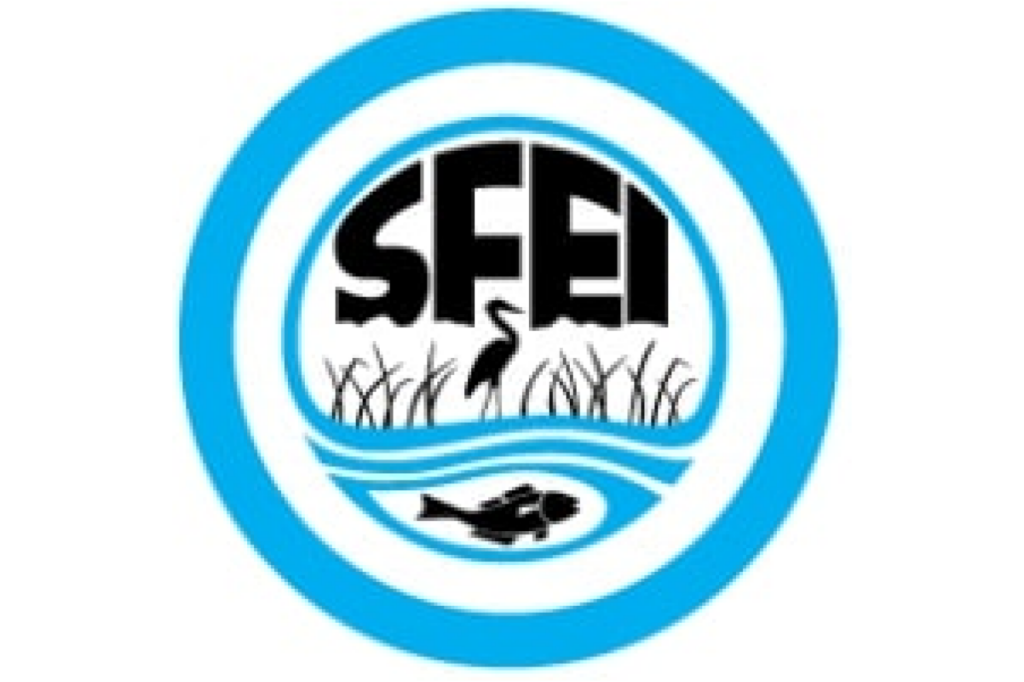
Science Advisory Team
The Science Advisory Team met regularly with each Design Team, contributed to the Briefing Book, provided online access to data through the Resilience Atlas, and presented a two-hour science briefing at the Exploratorium at the start of the research phase. Through these activities, the Team helped incorporate local scientific knowledge and datasets, identified ecosystem restoration and adaptation opportunities, and maximized alignment with current environmental management efforts. The Team also provided review and comment on each of the draft design concepts. The Science Advisory Team draws on the scientists of the San Francisco Estuary Institute and is made possible by support from the Santa
Clara Valley Water District.
Robin Grossinger
Scott Dusterhoff
Katie McKnight
Jeremy Lowe
Erica Spotswood
Letitia Grenier
Julie Beagle
April Robinson
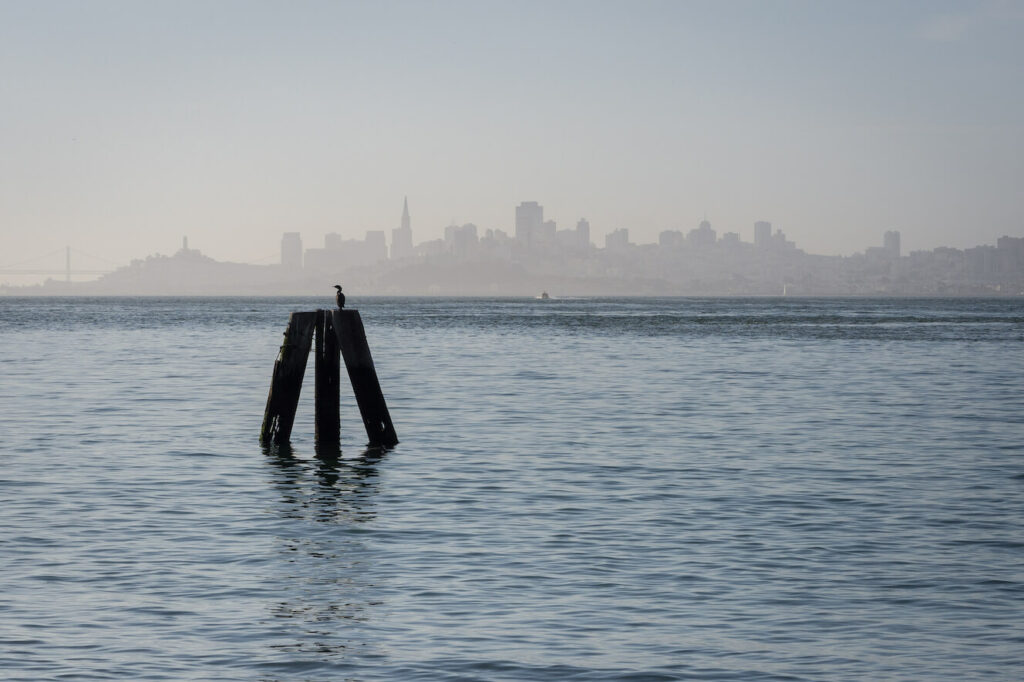
Finance Advisory Team
The Finance Advisory Team prepared a Finance Guide during the Research Phase for use by the Design Teams in preparation of their design alternatives. The guide provides a funding and financing reference for resilient infrastructure along the San Francisco Bay shoreline. The Guide provides a strategic perspective and descriptive overview of funding and financing options to help orient design ideas towards more feasible, fundable projects. During the Design Phase, the Finance Advisory Team will provide specific project level guidance as requested by each design team, and a review of each team’s project finance plan.
Brian Benn, Environmental Risk & Financial Solutions
Michael Paparian, Environmental Finance Consultant
Shalini Vajjhala, Re:focus Partners
Kathy Schaefer, UC Davis Watershed Sciences Center
Robert Spencer, Urban Economics
Mark Northcross, Nha Advisors
Final Assessment
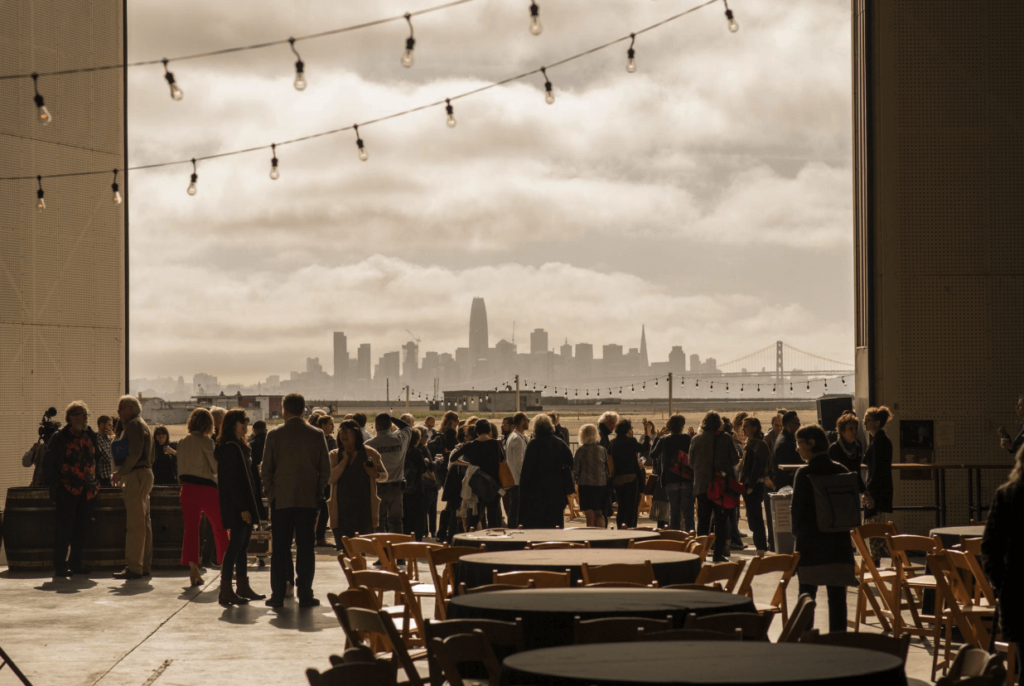
Given the ambitious and experimental structure of the Bay Area Challenge, the Executive Committee decided to conduct an assessment of the process and outcomes, capturing the impacts and lessons learned with a focus on understanding the overall progress the region has made toward that goal. Another purpose of this assessment is to inform the next phase of implementation. The nonprofit Consensus Building Institute conducted 29 interviews and informal conversations with agency, nonprofit, community, and design team representatives to assess the Challenge’s impact, lessons learned, and potential next steps toward a resilient Bay Area. Interview findings are captured here.
Special Thanks to the Funders
The Rockefeller Foundation, Bay Area Regional Collaborative, Coastal Conservancy, Marin Community Foundation, MT, Seedfund, Resource Legacy Fund, City and County of San Francisco, The San Francisco Foundation, Santa Clara Valley Water District
